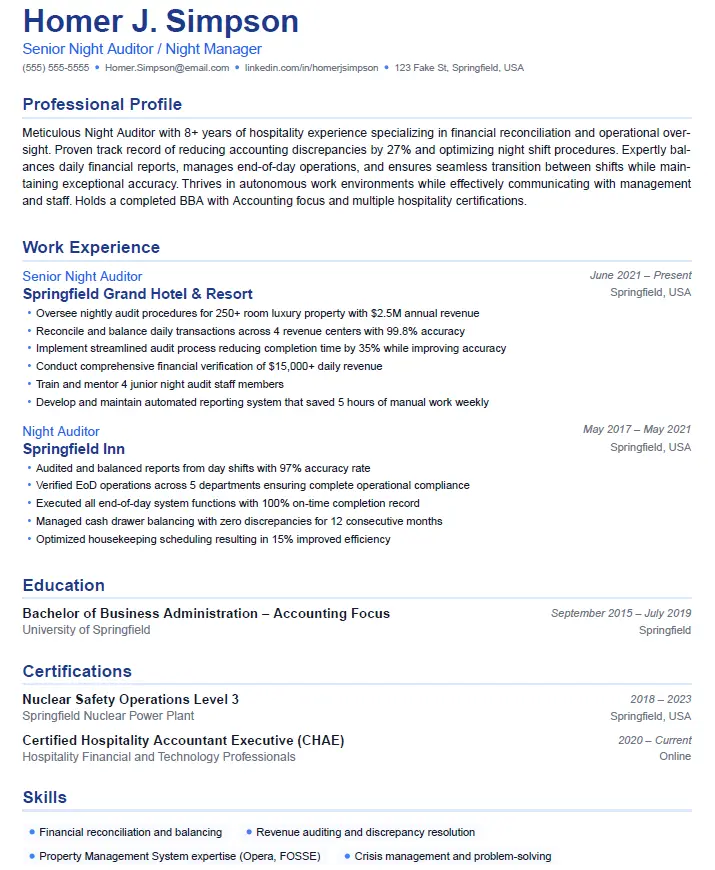
Creating your first CV feels overwhelming when you have no work experience, but every successful professional started exactly where you are now. The key isn't having years of experience—it's knowing how to present your potential, skills, and achievements in a way that convinces employers you're worth hiring.
This guide provides practical, actionable tips to help you create a compelling CV that opens doors, even without traditional work experience. You'll learn how to leverage AI tools for a strong first draft, highlight transferable skills effectively, and position yourself as a valuable candidate regardless of your employment history.
Why Having No Experience Isn't Actually a Problem
Employers understand that everyone starts somewhere. When hiring entry-level candidates, they're looking for potential, enthusiasm, and transferable skills rather than extensive work history. Your CV needs to demonstrate these qualities through education, projects, volunteer work, and personal achievements.
The biggest mistake first-time CV writers make is focusing on what they lack instead of what they bring to the table. Shift your mindset from "I have no experience" to "I have relevant skills and untapped potential."
12 Essential Tips for Creating Your First CV
1. Start with AI for Your First Draft
Modern AI tools can help you create a solid foundation for your CV quickly. Use ChatGPT, Claude, or Gemini to generate your initial content, then customize it to reflect your unique experiences and personality.
Here's a proven prompt to get started:
"I'm creating my first CV with no work experience. I'm a [your situation: recent graduate/student/career changer] interested in [field/industry]. Help me create a professional CV that includes: a compelling personal statement, relevant skills section, and ways to present my [education/volunteer work/projects] effectively. Focus on transferable skills and potential rather than work experience."
After getting your AI-generated draft, you can refine and personalize it using tools like Interactive CV's AI Resume Builder to create a polished, professional-looking document with proper formatting and design.
2. Craft a Powerful Personal Statement
Your personal statement is your chance to make a strong first impression. Focus on your enthusiasm, relevant skills, and career goals rather than apologizing for lack of experience.
Effective personal statement structure:
- Your educational background or current situation
- Relevant skills and qualities you possess
- Your career aspirations and what you're seeking
- What value you'll bring to employers
Example: "Motivated business studies graduate with strong analytical and communication skills developed through academic projects and volunteer work. Experienced in social media management and event organization through university societies. Seeking an entry-level marketing role where I can apply my creative problem-solving abilities and passion for digital marketing to drive brand growth."
3. Lead with Education When You Have Strong Academic Credentials
If you're a recent graduate or have relevant qualifications, place your education section prominently near the top of your CV. Include more detail than you would in a traditional CV.
What to include in your education section:
- Degree title, institution, and graduation date
- Final grade (if 2:1 or above)
- Relevant coursework that applies to your target job
- Academic projects or dissertations
- Academic achievements, honors, or awards
- Online courses and certifications
4. Transform Informal Experience into Professional Assets
Every activity can demonstrate valuable skills when presented properly. The key is connecting your experiences to workplace competencies.
| Informal Experience | Transferable Skills | How to Present It | CV Section |
|---|---|---|---|
| Volunteer work | Teamwork, communication, leadership | "Coordinated fundraising events that raised £500+" | Experience/Voluntary Work |
| Part-time jobs | Customer service, time management | "Managed multiple customer inquiries in fast-paced environment" | Experience |
| Personal projects | Initiative, technical skills | "Developed personal blog with 1000+ monthly readers" | Projects |
| Sports/clubs | Leadership, goal-setting, collaboration | "Captain of university football team, improved team performance by 20%" | Additional Experience |
5. Master the Art of Skills Presentation
Focus on transferable skills that apply across industries and roles. These are often more valuable to employers than specific experience.
Essential transferable skills to highlight:
- Communication: Written, verbal, presentation abilities
- Problem-solving: Analytical thinking, creative solutions
- Teamwork: Collaboration, conflict resolution
- Time management: Meeting deadlines, prioritization
- Adaptability: Learning quickly, handling change
- Leadership: Initiative, motivation, decision-making
Support each skill with a brief example or context where you demonstrated it.
6. Create Compelling Project Descriptions
Personal and academic projects can be as impressive as work experience when presented effectively. Focus on the problem you solved, your approach, and the results achieved.
When describing your projects, use powerful action words that highlight your accomplishments. Words like "developed," "implemented," "optimized," and "created" make your contributions sound more impactful than passive descriptions.
Project description template:
- What the project was and its purpose
- Your specific role and responsibilities
- Tools, skills, or methods you used
- Measurable outcomes or results
7. Use a Skills-Based CV Format
When you lack extensive work history, a skills-based format helps you lead with your strengths. This format emphasizes competencies over chronological work experience.
Skills-based CV structure:
- Contact information
- Personal statement
- Core skills and competencies
- Education and qualifications
- Relevant experience (including projects, volunteer work)
- Additional sections (languages, interests, etc.)

8. Quantify Your Achievements
Numbers grab attention and provide credible evidence of your capabilities. Look for opportunities to include specific metrics in your descriptions.
Learn how to write effective bullet points that showcase your achievements with concrete numbers and results.
Examples of quantifiable achievements:
- "Organized charity event that raised £1,200 for local food bank"
- "Managed social media accounts with 500+ followers"
- "Completed 40-hour digital marketing certification with 95% score"
- "Led team of 8 volunteers for community cleanup project"
- "Achieved first-class honors with 3.8 GPA"
9. Tailor Your CV for Each Application
Generic CVs rarely succeed. Study the job description carefully and adjust your CV to highlight the most relevant skills and experiences for each role.
To make this process easier, consider using our CV-Job Description Match tool to analyze how well your CV aligns with specific job requirements and get suggestions for improvements.
CV customization checklist:
- Mirror key skills mentioned in the job posting
- Use similar language and terminology
- Prioritize the most relevant experiences
- Adjust your personal statement to match the role
- Research the company culture and values
10. Include Relevant Certifications and Online Learning
Online courses and certifications demonstrate initiative and commitment to professional development. Include any relevant learning that supports your career goals.
Valuable certification sources:
- Google Career Certificates
- Coursera professional courses
- LinkedIn Learning paths
- Industry-specific certifications
- Language qualifications
- First aid or safety training
11. Pay Attention to Formatting and Presentation
Professional presentation is crucial when you're trying to make up for limited experience. Your CV should look polished and be easy to scan quickly.
For comprehensive guidance on CV structure and sections, the UK National Careers Service provides detailed advice on how to organize your CV effectively, especially for first-time job seekers.
Formatting best practices:
- Keep it to one page for entry-level positions
- Use a clean, professional font (Arial, Calibri, or similar)
- Maintain consistent spacing and alignment
- Use bullet points for easy scanning
- Include plenty of white space
- Save as PDF to preserve formatting
12. Show Personality Through Interests and Achievements
A brief interests section can help you stand out and provide conversation starters during interviews. Choose activities that demonstrate positive qualities or relate to your target role.
Effective interest examples:
- "Marathon running" (shows determination and goal-setting)
- "Photography" (demonstrates creativity and attention to detail)
- "Volunteer coaching" (shows leadership and communication skills)
- "Language learning" (indicates adaptability and global mindset)
Common Mistakes to Avoid
Don't apologize for lack of experience. Never include phrases like "Although I have no experience..." or "Despite being new to the field..." Instead, focus confidently on what you bring to the role.
Avoid being too generic. Phrases like "hard-working" and "team player" without supporting evidence don't add value. Always provide specific examples or context.
Don't inflate your experience. Be honest about your background while presenting it in the best possible light. Employers will verify information during the hiring process.
Skip irrelevant personal information. Don't include age, marital status, photo (unless specifically requested), or unrelated hobbies that don't add professional value. Newcastle University's comprehensive CV guide provides excellent advice specifically for students and new graduates on creating professional CVs that focus on relevant skills and potential rather than extensive work history.
The Next Steps After Creating Your CV
Once you've created your CV, complement it with a tailored cover letter for each application. Your cover letter allows you to explain your interest in the specific role and company while addressing any concerns about your experience level.
If you're wondering how to write a compelling cover letter without extensive work experience, check out our detailed guide on writing cover letters with no experience. This guide provides specific templates and examples for first-time job seekers.
Consider using AI-powered cover letter tools to create compelling, personalized letters that support your CV and increase your chances of landing interviews.
Practice your interview skills using AI interview simulators to prepare for common questions about your limited experience and to develop confident responses that highlight your potential.
Frequently Asked Questions
How long should my CV be if I have no experience?
Stick to one page for entry-level positions. While you might worry about having enough content, employers prefer concise, relevant information over lengthy descriptions. Focus on quality over quantity and use the space to highlight your most relevant skills and achievements.
Should I include part-time jobs that aren't related to my career goals?
Yes, include relevant part-time work even if it's not directly related to your target field. Any employment demonstrates work ethic, reliability, and transferable skills like customer service, time management, and teamwork. Frame the experience in terms of skills gained rather than tasks performed.
Can I use the same CV for different types of jobs?
No, you should tailor your CV for each application. Different roles require different skills and qualities, so customize your personal statement, skills section, and experience descriptions to match what each employer is seeking. This targeted approach significantly improves your chances of success.
How do I explain gaps in my CV or periods of unemployment?
Be honest about gaps but focus on productive activities during those periods. Include any volunteer work, courses, personal projects, or skill development you pursued. If you were dealing with personal circumstances, briefly mention it without going into detail, then redirect to what you learned or how you grew during that time.
Should I include my GPA or grades on my CV?
Include your GPA or final grade only if it's strong (typically 3.5/4.0 or above, or a 2:1 classification or higher in the UK). If your overall grade isn't impressive but you excelled in relevant subjects, you can mention specific course grades instead. If your academic performance was average, focus on other achievements and skip the grades.
What's the best way to format my contact information?
Include your full name, phone number, professional email address, and city/region. Add your LinkedIn profile URL if it's professional and up-to-date. Avoid including your full address for privacy reasons—city and postcode are sufficient. Make sure your email address is professional (firstname.lastname@email.com rather than something casual or outdated).